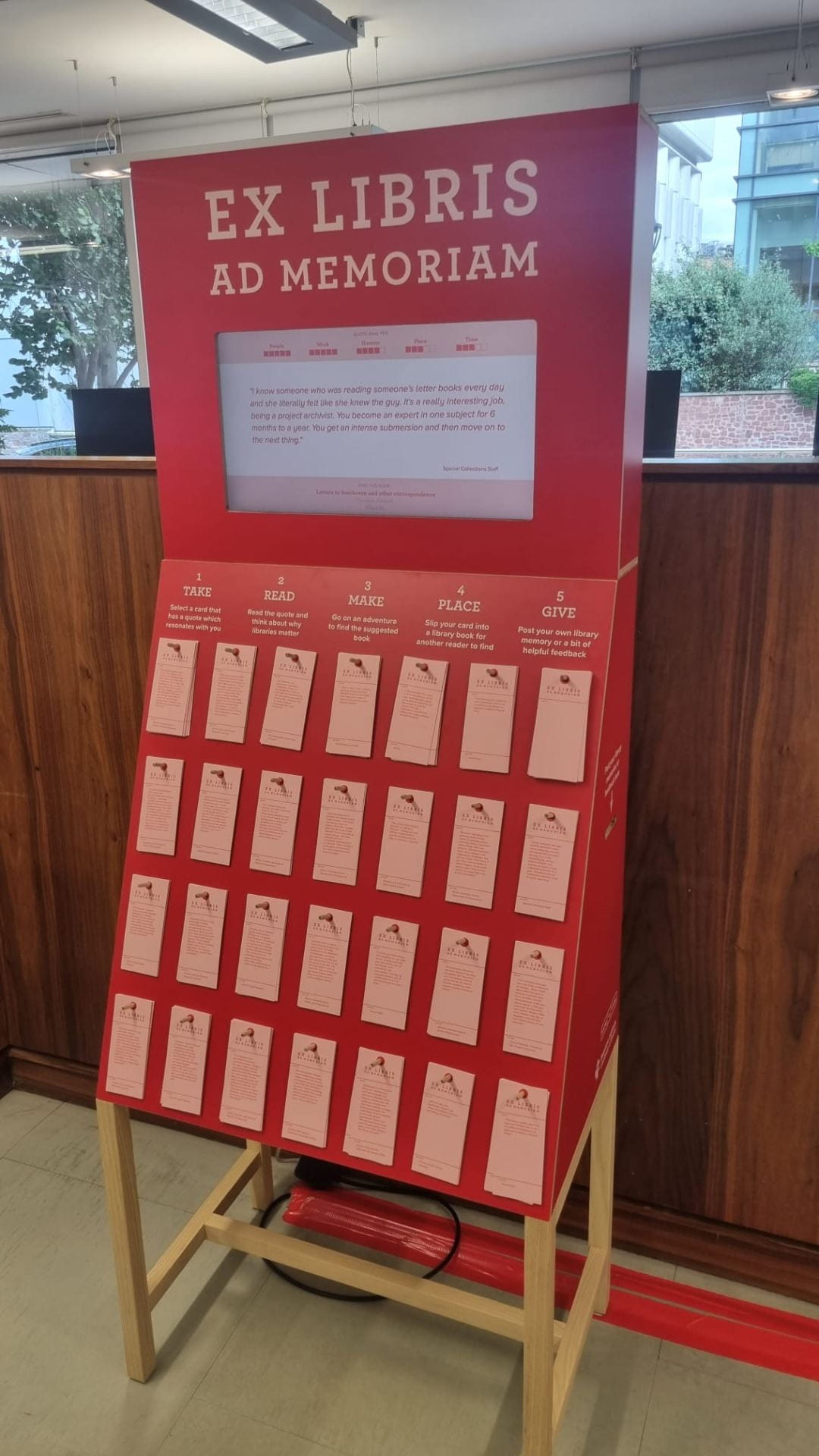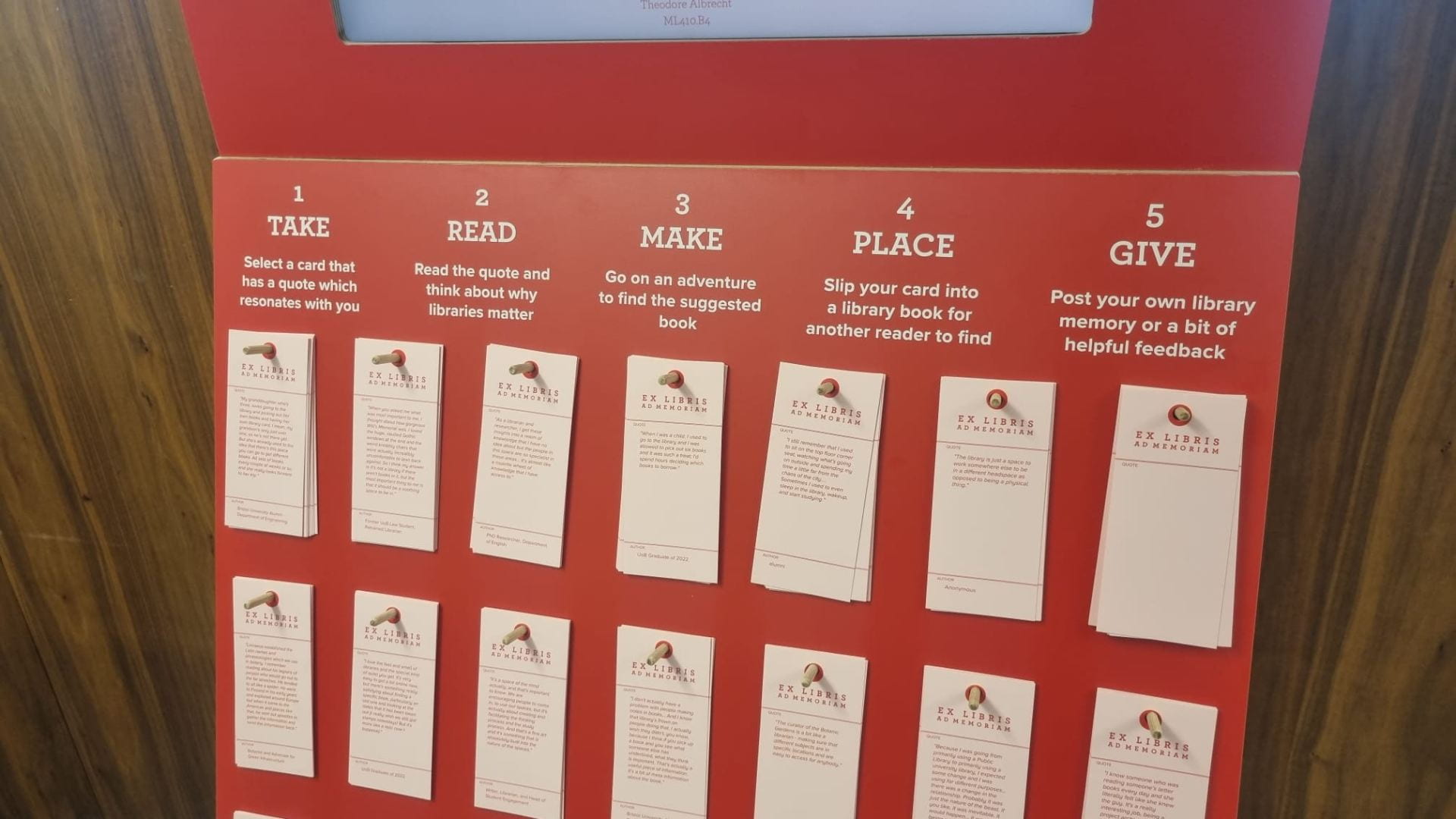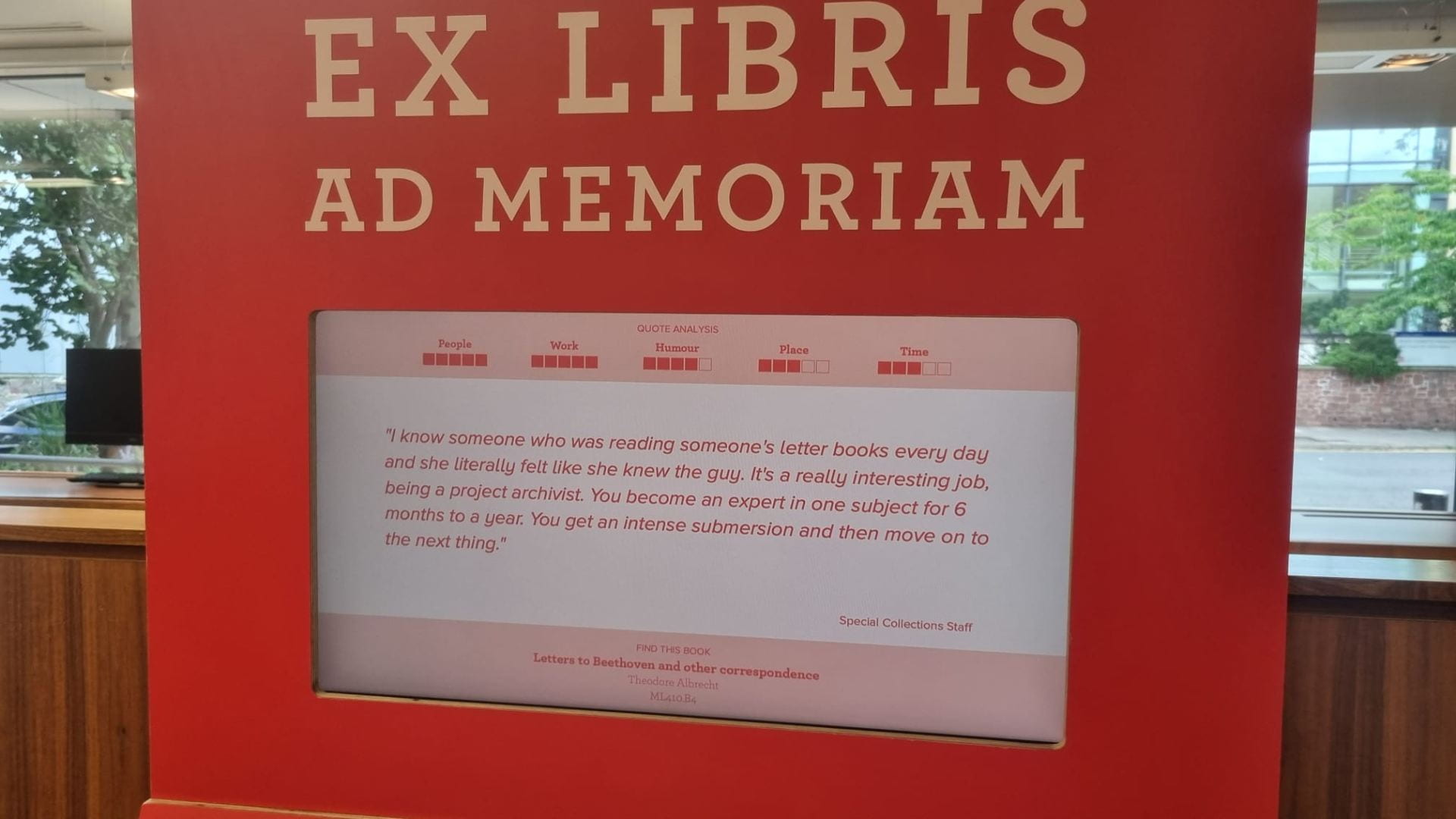Library Stories
How have encounters with ideas hidden in the pages of books and archives stimulated imagination? What connections with others happen amongst the labyrinth of shelves and ideas that change the course of lives?

What did the project involve?
This project sought to explore the role libraries have played, and play, in people’s lives: Life with books, but also the wider role libraries have played in terms of encounters with books/people/ideas, belonging, stimulating the imagination etc. The project was conceived as a chance to engage alumni with current students and vice-versa around library memories. The researchers worked creatively, in collaboration with an artist, to engage with their audiences around their memories of libraries.
As well as researching into memories and encounters within University of Bristol libraries, this project explored more deeply the intangibility of libraries and the wider role libraries play within people’s lives: past present and in the future: How have encounters with ideas hidden in the pages of books and archives stimulated imagination? What connections with others happen amongst the labyrinth of shelves and ideas that change the course of lives? Why are libraries special? Is there something about holding a world of intangible thoughts in your hands? Is it the connection to a history of learning or maybe the hushed and focused environment of busy minds? How would your perfect library look and feel? What would it offer you?
The research team was made up of an interdisciplinary team to ensure the process and outcomes encapsulated the widest range of library experience. The project identified important demographics of contact. These were:
- Current students
- Current staff
- Alumni
- Community of users outside of the university
- The Little Library at Barton Hill
- University of Bristol Theatre Collection
- University of Bristol Special Collection
After identifying the key groups, the first stage of the project involved story gathering. This involved a variety of different interview techniques. Many one to one interviews were conducted between interviewers and members from the key groups, most of which were conducted via online video call platforms for accessibility. There were also interview workshops conducted with larger groups of key demographics such as a group workshop with the staff of Special Collections. The research team also devised engagement strategies to collect spontaneous micro-interviews from the current student body at busy and highly visited areas of the university campus.
Once all the interview data was collected it was turned into an engaging output by the creative technologists and the artists Stand + Stare. Key quotations and inspiring stories were cut from the interviews and the creative technologists created a system in which each quotation underwent content analysis to identify its key qualities and topics. An algorithm was devised that took the key characteristics of each quote and, using the class mark system of the library collection, connected each quotation to a unique book currently held in the University of Bristol Library. This information was then printed onto bookmarks to be held on a kiosk designed by Stand + Stare and held in the Arts and Social Science Library student common area. The idea was that while students read about a significant memory of another library user, they were encouraged to discover a new book, and to create their own new library memory.
Who are the team and what do they bring?
- Eszter Vigh (Digital Health, University of Bristol) is a researcher who focuses on the user experience of those purchasing alcohol on online grocery shopping platforms. She is specifically looking to change purchasing behaviour by counter-acting dark patterns on e-commerce websites with health promoting choice-architecture informed interventions. The aim of her work is to come up with early policy frameworks as they relate to health promotion behaviour in the UK.
- Benjamin Park (English, University of Bristol) is a researcher of 20th and 21st century literature and culture with a dual focus on modernism as well as creative technologies and speculative futures. As a former literary and theatre critic he has experience in conducting and producing interviews.
- Pravin Kamble (Engineering, University of Bristol) is an aerospace engineer working on sound suppression for hovercrafts.
- Gillian Hurst (English, University of Bristol) is a researcher of Medieval literature and history and has extensive experience in archival studies.
- Thomas Proudfoot (Modern Foreign Languages, University of Bristol) is a researcher of modern foreign languages with a focus on Italian. In his previous work he conducted an ethnographic study of Italian folk music involving interview based field research.
- Josh Ramini (Computer Science, University of Bristol) is a software developer, computer programmer, and researcher.
- Peter Bennett (Computer Science) lectures in Human-Computer Interaction with the Bristol Interaction Group, as well as working as an independent creative technologist.
- Lucy Telling and Barney Heywood (Stand + Stare) create interactive installations, exhibitions and performances. Their automated experiences are often based on historical material and memory, which has led them to work with museums, libraries, universities and a variety of organisations seeking innovative ways in which to open up their archives.
What were the results?
The final outcome of the project was the creation of the Library Stories Kiosk which was placed in the student common area of the ASSL at the start of the academic year 2022.



The research also generated an archive of interviews with current students, alumni, current staff, and members of the community. This data is held in the Special Collections and is to be part of the collection moved to the future New Library.

